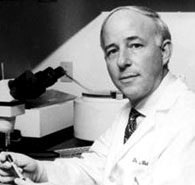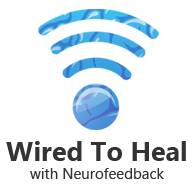Archive for the ‘Commentary’ Category
Monday, November 23rd, 2009
 Even before the usual fire season got underway in Southern California this year, we had one of the largest fires ever in the Angeles National Forest. It was arson-set, and suspicion is cast on an immigrant who developed mental health issues over the past few years. Just fighting the fire cost the state nearly $100M, and that does not count the resource loss, the loss of carbon capture in future years, the impending flooding damage, etc. Arson is notoriously difficult to prosecute. Fingering an arsonist often involves putting evidence together from a number of instances to detect a pattern. This means that the arsonist is taken out of action late in his career, after a lot of damage has already been done. Further, success in that effort means so little in societal terms. At best it takes one arsonist out of circulation, one from a population pool of 16 million people. Even before the usual fire season got underway in Southern California this year, we had one of the largest fires ever in the Angeles National Forest. It was arson-set, and suspicion is cast on an immigrant who developed mental health issues over the past few years. Just fighting the fire cost the state nearly $100M, and that does not count the resource loss, the loss of carbon capture in future years, the impending flooding damage, etc. Arson is notoriously difficult to prosecute. Fingering an arsonist often involves putting evidence together from a number of instances to detect a pattern. This means that the arsonist is taken out of action late in his career, after a lot of damage has already been done. Further, success in that effort means so little in societal terms. At best it takes one arsonist out of circulation, one from a population pool of 16 million people.
The same holds true for pedophiles. By the time they are apprehended, they have typically already offended against a large number of children. Serial killers are typically also caught only after many years of violence. Again, a pattern needs to be detected before a serial killer can even be hypothesized. Financial skullduggery is usually discovered only after many years, or it reveals itself when it collapses of its own internal contradictions. Of course we find some satisfaction in the prosecution of these criminals, but in the larger scheme of things the remedy is unavailing if justice arrives so late upon the scene. How might things be otherwise?
(more…)
Posted in Application of Neurofeedback, Commentary, Disregulation, Efficacy, Neurofeedback | 3 Comments »
Monday, November 23rd, 2009
 It has happened a number of times now that a high-powered executive or other successful professional has come to our Woodland Hills office for neurofeedback training for one issue or another, or simply for optimum performance training, and confided that they depend on marijuana to get them through. The usual outcome is that their marijuana utilization will drop off as their brains achieve a better state of self-regulation. Anxiety falls off; tension is released; sleep improves; pain subsides; stress tolerance increases. These are not trivial matters. They are in fact collectively life-altering. It has happened a number of times now that a high-powered executive or other successful professional has come to our Woodland Hills office for neurofeedback training for one issue or another, or simply for optimum performance training, and confided that they depend on marijuana to get them through. The usual outcome is that their marijuana utilization will drop off as their brains achieve a better state of self-regulation. Anxiety falls off; tension is released; sleep improves; pain subsides; stress tolerance increases. These are not trivial matters. They are in fact collectively life-altering.
Alternatively, we may only get to hear about the marijuana use after it has ceased, often to the amazement of the clients themselves. They may either have had no intention of giving it up, or they might simply have seen marijuana as indispensable to their well-being. The surprise on their part is matched by the surprise on ours, namely to see just how ready these people are to jettison the marijuana once their system no longer benefits from it particularly. By and large we are not dealing with recreational use here.
(more…)
Posted in Application of Neurofeedback, Commentary, Neurofeedback | 7 Comments »
Monday, August 17th, 2009
 Two events coalesced recently in my mind—the rehabilitation of Michael Vick and the riot at Chino prison in California. The second of these is tied to a third, namely the directive under which the State of California finds itself to reduce its prison population by 43,000 inmates in short order. Michael Vick hails from my alma mater, Virginia Tech, which for some reason makes his criminal behavior more my issue than it would be otherwise. He has attempted to express contrition about his past behavior, but the statements might well have been prepared by his lawyer. He said everything that he might be expected to say, and he’ll no doubt go forth with his cue cards and speak on behalf of the Humane Society as he promised. Two events coalesced recently in my mind—the rehabilitation of Michael Vick and the riot at Chino prison in California. The second of these is tied to a third, namely the directive under which the State of California finds itself to reduce its prison population by 43,000 inmates in short order. Michael Vick hails from my alma mater, Virginia Tech, which for some reason makes his criminal behavior more my issue than it would be otherwise. He has attempted to express contrition about his past behavior, but the statements might well have been prepared by his lawyer. He said everything that he might be expected to say, and he’ll no doubt go forth with his cue cards and speak on behalf of the Humane Society as he promised.
(more…)
Posted in Application of Neurofeedback, Commentary, Neurofeedback | 1 Comment »
Friday, August 14th, 2009
 At a town hall gathering, the elderly gentleman pleads: “I like Medicare. Don’t let the government take it over.” Where, then, does one start the conversation about health care? President Jefferson said that it would take an educated populace to secure democracy. That’s grounds to worry. There’s probably nothing one can say to the ranters that would bring them back into the conversation. We do have something to say, however, to the insurance companies that are stealthily fomenting this nonsense while they publicly give lip service to the insurance reform effort. At a town hall gathering, the elderly gentleman pleads: “I like Medicare. Don’t let the government take it over.” Where, then, does one start the conversation about health care? President Jefferson said that it would take an educated populace to secure democracy. That’s grounds to worry. There’s probably nothing one can say to the ranters that would bring them back into the conversation. We do have something to say, however, to the insurance companies that are stealthily fomenting this nonsense while they publicly give lip service to the insurance reform effort.
Let’s start the conversation where we are presently. Insurance companies are currently entitled to exclude anyone from coverage. What happens, then, to the person who cannot obtain insurance coverage? The Constitution stipulates that the role of government is to “provide for the general welfare.” There must be a public option to which the person may repair, because leaving a person without insurance against large risks should not be ok in a civilized society. Surely insurance companies could not object to the existence of a public plan that insures those whom they will not insure. But yet they do object. Their well-being is threatened by a public insurance option, and the well-being of the uninsured is simply irrelevant in that context.
The highest priority at the moment is to find a way to include the uninsured within the system. We don’t even allow people to drive without insurance, and this is a much bigger issue for all concerned—for the individual and for the society that ends up either paying or bearing the loss. The cost isn’t even that high–$2000 per year per uninsured (versus $8300 average per year for Medicare recipients). Much of this just surfaces costs that are currently hidden within the system.
(more…)
Posted in Commentary, Neurofeedback | 3 Comments »
Thursday, August 6th, 2009
 The recent death of Joel Weisman, MD, presents another occasion to reflect upon the process of scientific research at its very early stages, where the usual rules by which knowledge is enshrined are not yet in place. Weisman was a general practitioner in our home town of Sherman Oaks in 1980 when he noticed three patients with a common set of symptoms—fevers, rashes, weight loss, and swollen lymph nodes. An immune deficiency was indicated, so Weisman referred his patients to immunologist Martin Gottlieb at UCLA, who at that moment was treating a patient with the same set of symptoms. All were gay men. Said Gottlieb of Weisman: “In his practice he was alert to unusual symptoms in his patients. He had a sense that something out of the ordinary was happening.” This was, of course, the beginning of the discovery of AIDS. Weisman was never a scientist, but he could serve the process of scientific advance simply through good observation of those who in his own seasoned clinical judgment were outliers. He was in a much better position to do that than most closeted researchers doing formal studies. These fortuitous discoveries are an essential part of the scientific process. But because such anecdotal observations do not by themselves rise to the level of scientifically valid evidence, they are often disparaged, particularly when the data do not fit the prevailing paradigm. As a result, mature scientific disciplines eventually acquire some of the characteristics of a mature religion. They protect themselves against heresy just as religions do. This is no knock on religion. That’s where heresy can be well-defined with respect to established tenets of belief, and that’s where it belongs. The scientific process is supposed to be more open. Heresy should have no place there. The recent death of Joel Weisman, MD, presents another occasion to reflect upon the process of scientific research at its very early stages, where the usual rules by which knowledge is enshrined are not yet in place. Weisman was a general practitioner in our home town of Sherman Oaks in 1980 when he noticed three patients with a common set of symptoms—fevers, rashes, weight loss, and swollen lymph nodes. An immune deficiency was indicated, so Weisman referred his patients to immunologist Martin Gottlieb at UCLA, who at that moment was treating a patient with the same set of symptoms. All were gay men. Said Gottlieb of Weisman: “In his practice he was alert to unusual symptoms in his patients. He had a sense that something out of the ordinary was happening.” This was, of course, the beginning of the discovery of AIDS. Weisman was never a scientist, but he could serve the process of scientific advance simply through good observation of those who in his own seasoned clinical judgment were outliers. He was in a much better position to do that than most closeted researchers doing formal studies. These fortuitous discoveries are an essential part of the scientific process. But because such anecdotal observations do not by themselves rise to the level of scientifically valid evidence, they are often disparaged, particularly when the data do not fit the prevailing paradigm. As a result, mature scientific disciplines eventually acquire some of the characteristics of a mature religion. They protect themselves against heresy just as religions do. This is no knock on religion. That’s where heresy can be well-defined with respect to established tenets of belief, and that’s where it belongs. The scientific process is supposed to be more open. Heresy should have no place there.
(more…)
Posted in Commentary, Research, Scientific | 2 Comments »
Thursday, July 16th, 2009
 Dr. Siegfried Othmer the Chief Scientist for the EEG Institute goes onlinewithandrea to discuss Neurofeedback and how it is used to help conditions such as Anxiety, Autism, Cerebral Palsy, Depression, Seizures, Post Traumatic Syndrome, ADD/ADHD, Sleep Disorders, and many others. Dr. Siegfried Othmer the Chief Scientist for the EEG Institute goes onlinewithandrea to discuss Neurofeedback and how it is used to help conditions such as Anxiety, Autism, Cerebral Palsy, Depression, Seizures, Post Traumatic Syndrome, ADD/ADHD, Sleep Disorders, and many others.
Hosted by Andrea R. Garrison
This interview is approximately 2.5 hours in length.
To listen to this interview:
Click on the image of the multimedia player below to be taken to the blogtalkradio.com website.

Posted in ADD / ADHD, Application of Neurofeedback, Clinical Methods, Commentary, Efficacy, Neurofeedback, Scientific | No Comments »
|
|
Subscribe to Email Newsletter
The EEG Info Newsletter circulates via email at least once a month. A variety of topics related to the Neurofeedback / EEG Biofeedback field are covered in over 200 articles.
|
 It has happened a number of times now that a high-powered executive or other successful professional has come to our Woodland Hills office for neurofeedback training for one issue or another, or simply for optimum performance training, and confided that they depend on marijuana to get them through. The usual outcome is that their marijuana utilization will drop off as their brains achieve a better state of self-regulation. Anxiety falls off; tension is released; sleep improves; pain subsides; stress tolerance increases. These are not trivial matters. They are in fact collectively life-altering.
It has happened a number of times now that a high-powered executive or other successful professional has come to our Woodland Hills office for neurofeedback training for one issue or another, or simply for optimum performance training, and confided that they depend on marijuana to get them through. The usual outcome is that their marijuana utilization will drop off as their brains achieve a better state of self-regulation. Anxiety falls off; tension is released; sleep improves; pain subsides; stress tolerance increases. These are not trivial matters. They are in fact collectively life-altering.
 Two events coalesced recently in my mind—the rehabilitation of Michael Vick and the riot at Chino prison in California. The second of these is tied to a third, namely the directive under which the State of California finds itself to reduce its prison population by 43,000 inmates in short order. Michael Vick hails from my alma mater, Virginia Tech, which for some reason makes his criminal behavior more my issue than it would be otherwise. He has attempted to express contrition about his past behavior, but the statements might well have been prepared by his lawyer. He said everything that he might be expected to say, and he’ll no doubt go forth with his cue cards and speak on behalf of the Humane Society as he promised.
Two events coalesced recently in my mind—the rehabilitation of Michael Vick and the riot at Chino prison in California. The second of these is tied to a third, namely the directive under which the State of California finds itself to reduce its prison population by 43,000 inmates in short order. Michael Vick hails from my alma mater, Virginia Tech, which for some reason makes his criminal behavior more my issue than it would be otherwise. He has attempted to express contrition about his past behavior, but the statements might well have been prepared by his lawyer. He said everything that he might be expected to say, and he’ll no doubt go forth with his cue cards and speak on behalf of the Humane Society as he promised. At a town hall gathering, the elderly gentleman pleads: “I like Medicare. Don’t let the government take it over.” Where, then, does one start the conversation about health care? President Jefferson said that it would take an educated populace to secure democracy. That’s grounds to worry. There’s probably nothing one can say to the ranters that would bring them back into the conversation. We do have something to say, however, to the insurance companies that are stealthily fomenting this nonsense while they publicly give lip service to the insurance reform effort.
At a town hall gathering, the elderly gentleman pleads: “I like Medicare. Don’t let the government take it over.” Where, then, does one start the conversation about health care? President Jefferson said that it would take an educated populace to secure democracy. That’s grounds to worry. There’s probably nothing one can say to the ranters that would bring them back into the conversation. We do have something to say, however, to the insurance companies that are stealthily fomenting this nonsense while they publicly give lip service to the insurance reform effort. The recent death of Joel Weisman, MD, presents another occasion to reflect upon the process of scientific research at its very early stages, where the usual rules by which knowledge is enshrined are not yet in place. Weisman was a general practitioner in our home town of Sherman Oaks in 1980 when he noticed three patients with a common set of symptoms—fevers, rashes, weight loss, and swollen lymph nodes. An immune deficiency was indicated, so Weisman referred his patients to immunologist Martin Gottlieb at UCLA, who at that moment was treating a patient with the same set of symptoms. All were gay men. Said Gottlieb of Weisman: “In his practice he was alert to unusual symptoms in his patients. He had a sense that something out of the ordinary was happening.” This was, of course, the beginning of the discovery of AIDS. Weisman was never a scientist, but he could serve the process of scientific advance simply through good observation of those who in his own seasoned clinical judgment were outliers. He was in a much better position to do that than most closeted researchers doing formal studies. These fortuitous discoveries are an essential part of the scientific process. But because such anecdotal observations do not by themselves rise to the level of scientifically valid evidence, they are often disparaged, particularly when the data do not fit the prevailing paradigm. As a result, mature scientific disciplines eventually acquire some of the characteristics of a mature religion. They protect themselves against heresy just as religions do. This is no knock on religion. That’s where heresy can be well-defined with respect to established tenets of belief, and that’s where it belongs. The scientific process is supposed to be more open. Heresy should have no place there.
The recent death of Joel Weisman, MD, presents another occasion to reflect upon the process of scientific research at its very early stages, where the usual rules by which knowledge is enshrined are not yet in place. Weisman was a general practitioner in our home town of Sherman Oaks in 1980 when he noticed three patients with a common set of symptoms—fevers, rashes, weight loss, and swollen lymph nodes. An immune deficiency was indicated, so Weisman referred his patients to immunologist Martin Gottlieb at UCLA, who at that moment was treating a patient with the same set of symptoms. All were gay men. Said Gottlieb of Weisman: “In his practice he was alert to unusual symptoms in his patients. He had a sense that something out of the ordinary was happening.” This was, of course, the beginning of the discovery of AIDS. Weisman was never a scientist, but he could serve the process of scientific advance simply through good observation of those who in his own seasoned clinical judgment were outliers. He was in a much better position to do that than most closeted researchers doing formal studies. These fortuitous discoveries are an essential part of the scientific process. But because such anecdotal observations do not by themselves rise to the level of scientifically valid evidence, they are often disparaged, particularly when the data do not fit the prevailing paradigm. As a result, mature scientific disciplines eventually acquire some of the characteristics of a mature religion. They protect themselves against heresy just as religions do. This is no knock on religion. That’s where heresy can be well-defined with respect to established tenets of belief, and that’s where it belongs. The scientific process is supposed to be more open. Heresy should have no place there. Dr. Siegfried Othmer the Chief Scientist for the
Dr. Siegfried Othmer the Chief Scientist for the 
The Prevention Option
Monday, November 23rd, 2009The same holds true for pedophiles. By the time they are apprehended, they have typically already offended against a large number of children. Serial killers are typically also caught only after many years of violence. Again, a pattern needs to be detected before a serial killer can even be hypothesized. Financial skullduggery is usually discovered only after many years, or it reveals itself when it collapses of its own internal contradictions. Of course we find some satisfaction in the prosecution of these criminals, but in the larger scheme of things the remedy is unavailing if justice arrives so late upon the scene. How might things be otherwise?
(more…)
Posted in Application of Neurofeedback, Commentary, Disregulation, Efficacy, Neurofeedback | 3 Comments »